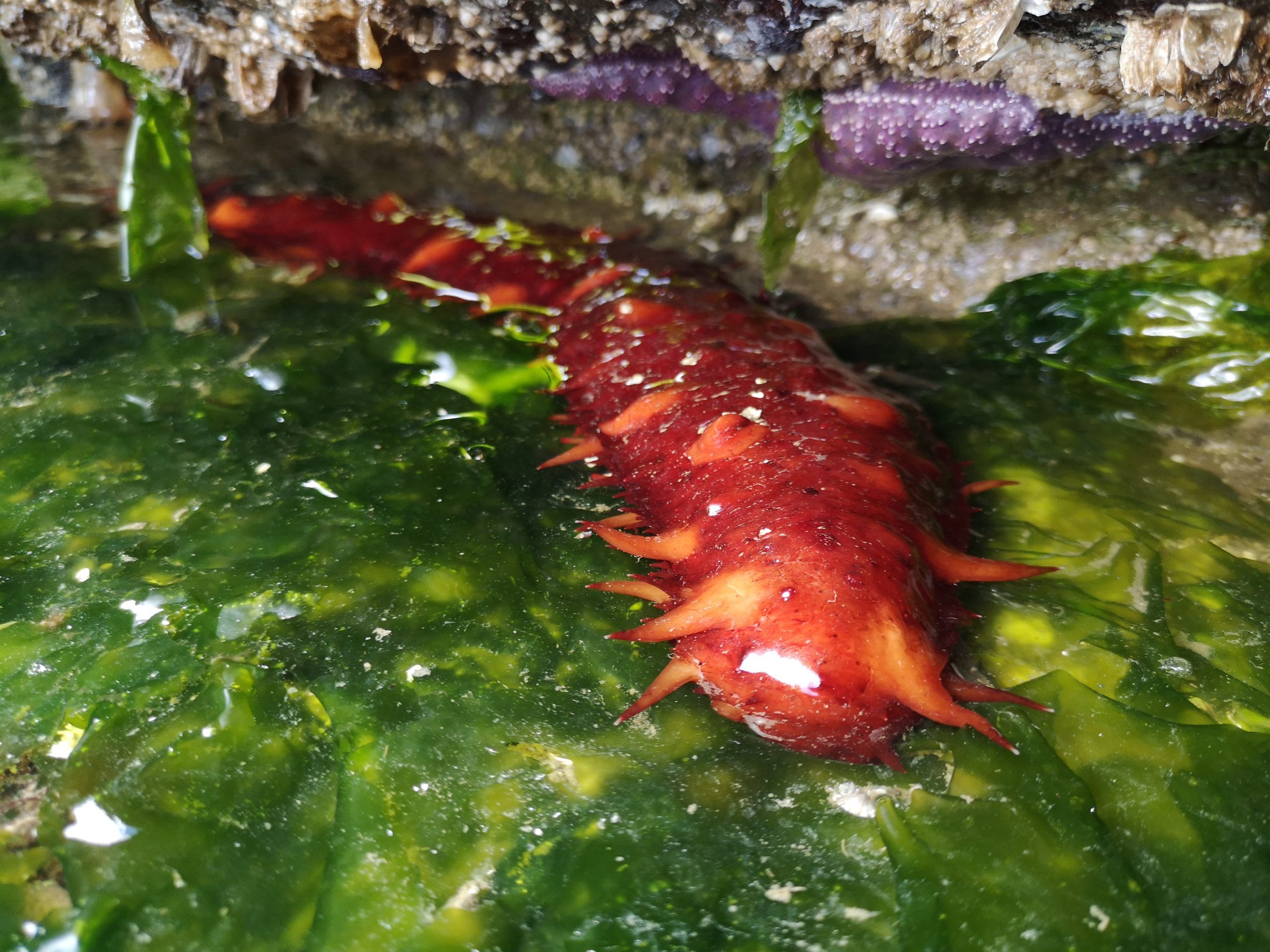The ‘cornerstone of marine ecosystems’ are in critical danger

Photo courtesy of Teale Phelps Bondaroff.
When people hear the term “wildlife crime,” they often think of activities like shark finning or elephant poaching, but there is an entire world of illegal activity focused on more unusual marine species, including sea cucumbers.
Teale Phelps Bondaroff, a Saanich councillor and former visiting research fellow at UVic’s Centre for Global Studies, is the co-founder of OceansAsia and an expert in marine wildlife crime.
OceansAsia, a volunteer-run marine conservation organization, has undertaken a variety of marine research initiatives, including investigations into the shark fin industry and wildlife crime routes in the shipping industry.
“The oceans have traditionally been neglected from a conservation perspective,” Phelps Bondaroff said in an interview with the Martlet. “Marine wildlife crime and illegal fishing is too often treated as an administrative issue whereas the same thing on land would be a criminal issue.”
OceansAsia is also the leading organization researching sea cucumbers globally. Sea cucumbers, Phelps Bondaroff explained, have been called “the earthworms of the sea,” and are “critical for marine conservation [and] for the health of ecosystems.”
He considers marine species such as sea cucumbers and krill to be the “cornerstone[s] of marine ecosystems,” but they are difficult to humanize and are often ignored in favor of more charismatic animals like whales and dolphins.
In their recent chapter in The World of Sea Cucumbers, Phelps Bondaroff and Felix Morrow explore crime pervading sea cucumber fisheries globally and the connections to organized crime, noting that “wildlife crime is one of the fastest growing criminal sectors … behind drugs, counterfeiting, and human trafficking.”
Crime occurs at every stage of sea cucumber fishing supply chains, from overfishing to the financial services associated with fisheries. Illegal fishing operations will target easily exploitable sea cucumber populations with weak governance, and will follow a “boom-bust cycle” of rapidly exploiting and then abandoning fisheries. This leaves behind marine ecosystems that may never recover.
Beyond the inherent damage to ecosystems, illegal fishing also has implications for boat crews. “A lot of illegal fishing boats treat their crews terribly,” Phelps Bondaroff told the Martlet. “There are human rights violations taking place on those boats on a daily basis.”
Further, illegal fishing has negative impacts on individuals. It actively reduces income and employment opportunities in legitimate fisheries and impacts the government in the sense that income from illegal fishing does not contribute to the economy.
Illegal fishing is not only an international issue; it happens in B.C. In May 2024, commercial fisherman Brent Belveal was fined $33 596 for illegally fishing in the Hecate Strait and Queen Charlotte Sound Glass Sponge Reefs Marine Protected Area (MPA).
A news release from Fisheries and Oceans Canada explains that “harvesters who disregard fishery closures under the Fisheries Act and the Oceans Act MPA regulations pose a risk of causing new damage to the reefs, and undermine decades of work to provide protection to these globally unique ecosystems.”
Sea cucumber crime is also present in B.C.
Scott Steer, a former commercial fisherman from Nanaimo, has been convicted and sentenced to jail time in multiple instances for illegal fishing, beginning in 2008. Steer has been charged with the illegal harvest of sea cucumbers as recently as 2021, and has been banned from fishing for life.
Marine ecosystems don’t respect geographic borders, so considering international issues of wildlife crime helps deepen our understanding of human impact on marine ecosystems as a whole.
“We depend on our oceans to survive,” Phelps Bondaroff explained. “Whether it’s for food or ecosystem services, oceans are critically important to our survival as a species and if we don’t protect them, we’ll die.”
“The important thing would be to step up and take action in some area,” he said. “That … to me, involves taking bigger issues and breaking them down into bite-sized chunks. You and your three friends could affect change on a global scale… [You] could work to protect a specific bay or move forward on a piece of legislation that will protect migratory birds. You can have that influence.”
“Often we feel like we’re screaming into the void,” Phelps Bondaroff added. “Scream into a smaller chamber.”







